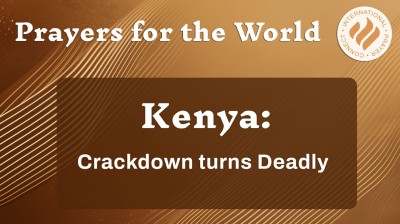In recent weeks, the Middle East has witnessed dramatic military escalation and an equally surprising pause. After the U.S. launched precision airstrikes on Iranian nuclear facilities, following Iran’s support for a multi-front assault on Israel, an uneasy ceasefire has taken hold. Despite fears of region-wide retaliation, Iran’s response was muted, and its allied militias remained largely inactive. What was long feared as a trigger for all-out war has, for now, revealed the limits of Iran’s power.
The conflict began brewing after the October 7, 2023, attack by Hamas on Israel. Iran openly supported Hamas and Hezbollah, prompting Israeli and U.S. strikes that dismantled key elements of Iran’s military and nuclear infrastructure. Iran’s expected allies; Russia, China, and North Korea, offered no tangible support. In fact, nations like China called for de-escalation, highlighting the fragility of so-called anti-Western alliances.
Though military action proved effective in neutralizing threats, it’s not a long-term solution. Both Israel and the United States must now engage diplomatically to prevent Iran from rebuilding its nuclear capabilities. The upcoming expiration of international sanctions in October presents a key window: Iran must return to compliance or face renewed sanctions and further isolation.
There are tentative hopes for a ceasefire in Gaza and revived diplomatic momentum potentially expanding the Abraham Accords and promoting regional cooperation. However, these efforts hinge on securing hostages and restoring stability in Gaza.
From a biblical worldview, these events underscore two truths: the volatility of earthly powers and the Lord’s unchanging sovereignty. While military might may restrain evil for a season, only the Prince of Peace can bring lasting peace. As Israel defends itself and nations reassess their alliances, believers are called to pray earnestly, faithfully - for God’s hand to move amid the shaking.
Prayer Pointers
- Pray: that peace will be pursued through diplomacy, not just deterrence, and that leaders seek God's justice over political gain.
- Pray: for the Lord to protect believers in Iran and Israel and strengthen their bold witness during this time of upheaval.
- Pray: for the softening of hardened hearts among leaders, that they may respond to conviction and turn toward peace with humility.
Prayer – Prayer for the Church and those in Leadership
Lord, restrain the hand of the violent and raise up peacemakers. Turn leaders’ hearts toward truth, humility, and justice. Strengthen Your church in the Middle East to shine brightly, even in shadows. Let peace take deeper root. Amen.

Watch / Listen / Meditate to ‘The Lord is My Shepherd’ sung by Carolyn Hyde
“The king’s heart is a stream of water in the hand of the Lord; he turns it wherever he will.”
- Proverbs 21:1 (ESV)
More: https://edition.cnn.com/2025/06/30/politics/iran-israel-military-success-path-diplomacy-analysis
After decades of violence in eastern Democratic Republic of Congo (DRC), a new peace agreement between DRC and Rwanda has sparked cautious hope for healing in one of the world’s most afflicted regions. Signed on June 27 in Washington, D.C., the accord is being called a “significant step toward peace” by international leaders, including UN Secretary-General António Guterres and the African Union.
The eastern DRC has long suffered under the grip of armed groups, most notably the M23 rebel group, which has overrun cities, displaced hundreds of thousands, and committed serious human rights abuses. While the Congolese government accuses Rwanda of backing the M23, they’ve denied this, claiming it has acted defensively. Nevertheless, as part of this new agreement, Rwanda has pledged to withdraw its troops from Congolese territory, while both sides will work to demobilize and disarm militias, including the M23 and the FDLR.
The deal also promises a regional economic framework within 90 days, targeting critical minerals like tantalum and lithium, resources vital to global technology but often tied to exploitation and instability in the region. The United States, along with Qatar and the African Union, played a key role in brokering the agreement.
While this accord marks a diplomatic breakthrough, concerns remain. Critics argue that past peace deals have collapsed due to poor enforcement and a lack of accountability. Notably, representatives of M23 were not part of the talks, and observers including Nobel laureate Dr. Denis Mukwege, have warned that the agreement overlooks justice for victims of violence, particularly women and children.
A joint security body will now be tasked with monitoring compliance over the next three months. Success depends on more than paper promises. It will require courage from leaders, protection for civilians, and a true willingness to disarm both hearts and weapons.
Prayer Pointers
- Pray: lasting peace in the DRC—that this agreement would lead to true healing, justice, and demilitarization across communities.
- Pray: Lift survivors of violence - ask God to restore dignity, bring justice, and raise up godly leaders to defend the vulnerable.
- Pray: that greed would not overtake governance, and that resource wealth would be stewarded with righteousness and compassion.
Prayer – Praying for the peace to reign
Father, bring lasting peace to the heart of Africa. Disarm every force of violence and raise up leaders of truth. Heal the wounds of the past, protect the weak, and let justice roll like a river across the Great Lakes region. Amen.
“The Lord is a refuge for the oppressed, a stronghold in times of trouble.” Psalm 9:9 (NIV)
More: https://www.defenceweb.co.za/african-news/landmark-dr-congo-rwanda-peace-agreement-widely-welcomed/
Amid intensifying warfare in Ukraine, the United States has paused several weapons shipments to Kyiv, citing the need to prioritize national defence readiness. The decision, confirmed by the White House, reflects growing concerns that U.S. stockpiles are being stretched too thin after more than two years of heavy support for Ukraine.
Key shipments impacted include Patriot air defence systems and precision-guided munitions vital tools in Ukraine’s effort to defend against relentless Russian aerial attacks. The pause arrives just days after Ukraine endured its most massive aerial assault yet: more than 500 missiles and drones targeted Ukrainian cities, killing civilians and damaging infrastructure.
While the U.S. insists the strength of its military remains unshaken, this moment marks a turning point in American support. Defence leaders are reassessing how best to balance aiding allies with safeguarding homeland readiness. Ukrainian officials have responded with concern, calling the decision painful amid Russia’s increasing gains, including full control of the eastern Luhansk region and territory in Dnipropetrovsk.
Tensions in the region remain high. Russia’s President Putin recently reiterated his claim that Ukraine “is ours,” while Kremlin forces continue their slow advance. Yet, Ukraine has also struck deep into Russian territory, targeting arms facilities with long-range drones. Meanwhile, international diplomacy stirs again: French President Macron held his first conversation in over two years with Putin, urging a ceasefire and negotiations.
The U.S. decision comes just weeks after President Trump’s face-to-face with Ukrainian President Zelensky at the NATO summit. While the two leaders have had a rocky relationship, talks have resumed, and prior suspensions of military aid and intelligence sharing were eventually reversed.
For followers of Christ, this pause is more than policy it’s a reminder of the sobering cost of war, the weariness of nations, and the need for lasting peace. Military might can delay destruction, but it cannot rebuild hearts, cities, or hope. Our ultimate trust is not in weapons or alliances, but in the God who “makes wars cease to the ends of the earth” (Psalm 46:9).
Prayer Pointers (One Min Prayer for Ukraine & Russia https://www.youtube.com/watch?v=uoX_5peamEQ )
- Pray: Ukrainian civilians caught in the crossfire, that God would be their shield, refuge, and source of hope.
- Pray: and ask the Lord to give discernment to U.S. and global leaders as they balance aid, readiness, and long-term peace.
- Pray: for softening in hardened hearts on both sides of the war—that the Spirit of God would stir repentance and peace.
Prayer – Praying for Peace for Ukraine & Russia
Lord God, protect the innocent in Ukraine and Russia alike. Let mercy interrupt violence. Give leaders courage to pursue peace, not pride. Break the weapons of war and raise up Your church to bring healing where fear and hatred have taken root. Amen.
“He makes wars cease to the end of the earth; He breaks the bow and shatters the spear.” Psalm 46:9 (ESV)
In a small northern village in Sri Lanka, the dirt tells a story. One that families have carried in silence for decades. Chemmani, once just a quiet Tamil village near Jaffna, is now known for something darker: mass graves. Hidden beneath the soil may lie hundreds of victims - ethnic Tamils believed to have been killed or disappeared during the civil war.
This June, the UN’s top human rights official, Volker Türk, visited the Chemmani grave site, where excavations recently unearthed 19 skeletons, including children. For people like 68-year-old Manuel Jeyachandra, whose son was taken by military personnel in 2008 and never seen again, this moment brought a flicker of fragile hope.
Jeyachandra is one of thousands of Tamil parents still waiting to know what happened to their missing loved ones. Since the war’s end in 2009, over 21,000 formal cases of missing persons have been submitted to Sri Lanka’s Office on Missing Persons. Yet justice has been painfully slow. At least 384 parents have died without answers.
Many fear the government lacks the will or the courage to face its past. UN officials and human rights groups are calling for independent, international investigations and transparent excavations carried out to global forensic standards. Without truth, they warn, there can be no closure. And without closure, there can be no true peace.
The Tamil community, once silenced, is raising its voice again. Protests, vigils, and testimonies are emerging, led not only by elders, but by a new generation. Youth groups are stepping up, organizing exhibitions and public storytelling to preserve the memory of the disappeared and demand accountability.
For believers, this moment invites intercession. Scripture teaches that every hidden thing will one day be brought into the light (Luke 8:17). Justice delayed may not be justice denied, if the Church will weep with the grieving and pray for truth to break through the stone walls of impunity.
We pray for the God who sees, even in the soil, to raise up voices of righteousness, heal the deep wounds of war, and bring restoration to the land and people of Sri Lanka.
Prayer Pointers
- Pray: for grieving families to find answers, and for the truth about the disappeared to be revealed with clarity and compassion.
- Pray: to stir the Sri Lankan government to act justly and transparently, resisting cover-up and committing to full accountability.
- Pray: for the Church in Sri Lanka to be a voice of healing, advocacy, and hope amid grief, silence, and suspicion.
Prayer – Praying for the people of Sri Lanka
Lord, shine Your light on every buried truth. Comfort grieving families who still wait. Let justice rise from the dust and move leaders to act with courage. Heal Sri Lanka’s wounds with truth, mercy, and the power of resurrection hope. Amen.
“For nothing is hidden that will not be made manifest, nor is anything secret that will not be known and come to light.” Luke 8:17 (ESV)
More: https://www.ucanews.com/news/unearthing-the-truth-buried-in-sri-lankas-mass-grave-sites/109475
Australia is entering formal talks to join a new defence and security agreement with the European Union, signalling a significant shift in its international posture amid a worsening global security environment. Prime Minister Anthony Albanese is set to meet with EU Commission President Ursula von der Leyen and European Council President António Costa during the G7 summit in Canada to explore the proposed partnership.
The potential agreement would align Australia with other EU security partners like Japan, South Korea, and the UK, covering cooperation in military exercises, counter-terrorism, cybersecurity, defence industries, and critical technologies. The talks follow recent dialogue in Singapore and Rome, where the proposal was first floated at the inauguration of Pope Leo XIV.
Though initially cautious, the Australian government appears increasingly open to deepening military ties with Europe, especially under pressure from President Trump for allies to boost defence spending. NATO Secretary General Mark Rutte recently warned that nations failing to invest adequately should “learn to speak Russian,” underscoring the West’s growing alarm over Russia’s military posture.
Australia’s defence and foreign ministers, Richard Marles and Penny Wong, are tasked with advancing the agreement. EU Ambassador to Australia, Gabriele Visentin, confirmed progress, noting shared democratic values and strategic interests between the EU and Australia.
Albanese also met Canadian Prime Minister Mark Carney to discuss joint military technologies such as over-the-horizon radar and Canada’s potential entry into AUKUS Pillar II, which focuses on emerging defence tech including AI, hypersonics, and quantum computing.
While the Israel–Iran conflict casts a shadow over the G7 meetings, Albanese continues bilateral discussions with leaders from Japan, South Korea, France, and Germany, as well as a crucial meeting with President Trump. The Australian leader is also expected to request tariff exemptions and reaffirm commitments under the US–UK–Australia nuclear submarine pact.
Prayer Pointers:
- Pray: Australia’s leaders to act with discernment as they forge new security alliances in a volatile global climate.
- Pray: for God to restrain escalation and use these diplomatic efforts to protect lives and promote peace among the nations.
- Pray: for the Church to stay awake, courageous and a clear voice of hope and holiness in an age of militarised uncertainty.
Prayer for Australia
Lord, in a world arming for conflict, we ask for wisdom over war, peace over pride. Guide Australia’s leaders in truth. Restrain escalation. Raise up Your Church as peacemakers in the storm, anchored in Your unshakable kingdom. In Jesus’ name, amen.
“Some trust in chariots and some in horses, but we trust in the name of the Lord our God.” Psalm 20:7
More: https://www.theguardian.com/australia-news/2025/jun/16/australia-to-hold-talks-aimed-at-entering-defence-pact-with-eu
This declaration, announced by Elias Sithole of the National Disaster Management Centre, enables the national government to mobilize resources and coordinate relief efforts across provincial lines. Under the Disaster Management Act, such a classification is used when a crisis exceeds the capacity of provincial response mechanisms and requires national intervention.
Since June 9, communities across the country have faced worsening weather patterns, highlighting the limitations of existing contingency plans. The national designation allows the activation of the SANDF, SAPS, and other national bodies, enabling a unified, more robust emergency response. Government departments and agencies will now be tasked with coordinating relief, rehabilitation, and long-term recovery efforts.
KwaZulu-Natal had already been operating under a provincial disaster classification earlier this year due to flooding, but this broader national declaration now incorporates multiple affected regions. According to the government, the focus will be on restoring services, rebuilding damaged infrastructure, and supporting displaced or affected citizens. Updates and progress will be monitored and reported regularly.
The disaster classification will remain in effect until the situation no longer meets the criteria or is officially revoked. Citizens, churches, and aid groups are being encouraged to participate in relief efforts and prayer.
Prayer Pointers:
- Pray: protection and strength for families displaced or grieving due to loss, and for quick recovery of essential infrastructure.
- Pray: for God to guide leaders coordinating disaster relief to act with clarity, compassion, and urgency, leaving no community overlooked.
- Pray: for long-term resilience against climate-related disasters and for wisdom to build systems that protect the vulnerable.
Prayer: Praying for the grieving, displaced and leaders
Lord, we lift South Africa to You. Bring comfort to the grieving, strength to the responders, and shelter to the displaced. Guide leaders with clarity and compassion. May Your mercy flow through every floodplain and heart. Restore what the storms have broken.
“God is our refuge and strength, a very present help in trouble.” — Psalm 46:1
More: https://businesstech.co.za/news/government/828522/national-state-of-disaster-declared-in-south-africa/
At least 31 people have been killed and more than 100 wounded following nationwide anti-government protests in Kenya, according to the Kenya National Commission on Human Rights (KNCHR). The demonstrations, held on “Saba Saba Day” (July 7), marked the anniversary of Kenya’s 1990 uprising for multiparty democracy and were driven by ongoing public outrage over proposed tax hikes, police brutality, and perceived government corruption.
Over 532 people have been arrested, with reports of two forced disappearances. The violence, which erupted in major cities including Nairobi and Eldoret, saw armed gangs allegedly working alongside masked police officers in unmarked vehicles. Protesters clashed with security forces in 20 of Kenya’s 47 counties, and widespread destruction to property including supermarkets, has further heightened tensions.
President William Ruto’s response has drawn strong criticism, especially after publicly stating that police should shoot looters in the legs rather than kill them - a remark seen by many as an endorsement of violence. Civil society groups, including the Law Society of Kenya and the Police Reforms Working Group, condemned the heavy-handed tactics used by security forces, which they claim defied court orders prohibiting such excessive deployment.
The United Nations Office for Human Rights (OHCHR) voiced deep concern over the killings, urging Kenyan authorities to ensure accountability and respect for international human rights obligations. Meanwhile, the Kenya National Cohesion and Integration Commission, a government body, warned politicians not to stoke ethnic tensions and denounced the police for their use of excessive force.
These protests form part of a broader wave of unrest that has gripped Kenya since June 2024, primarily led by youth demanding economic justice, political reform, and an end to state-sanctioned violence. More than 100 people have now been killed since the protests began.
Families of the victims and many Kenyan citizens continue to call for international oversight, police accountability, and structural reform, especially as the official response increasingly risks further polarising the nation.
Prayer Pointers:
Pray: for those grieving to receive comfort, truth, and justice for loved ones killed or disappeared in the crackdown.
Pray: ask God to raise righteous leaders in Kenya who value peace, equity, and the dignity of every life.
Pray: and intercede for protection and moral courage for peaceful protesters, journalists, and human rights defenders across Kenya.
Prayer for Peace and Justice in Kenya
Lord, we lift up Kenya in this hour of grief. Comfort families, protect the innocent, and raise up leaders of justice. Let truth prevail, violence cease, and Your peace reign over every street and soul in this broken land. Amen.
“Open your mouth, judge righteously, defend the rights of the poor and needy.” Proverbs 31:9
For more: https://www.aljazeera.com/news/2025/7/9/at-least-31-dead-532-arrested-in-kenyas-antigovernment-protests
30 Days of Prayer for the Church in Israel and Iran (17 June – 16 July)
There is one more week remaining of this prayer initiative, and we would welcome your participation!
On Pentecost Sunday, together with millions around the world we cried out for the salvation of Israel, for Jews, Arabs and Internationals in the land, and for the peace of Jerusalem (Psalm 122:6).
I am sensing a strong burden for the Middle East in the light of the ongoing crisis there and would like to invite you to continue to uphold that region and, in particular, the Christian Church there.
We have prepared some daily prayer pointers focusing on real-life people across the region who are serving God as evangelists, church planters and pastors. Many of these believers have sacrificed much for the Gospel and we want to uphold them at this critical time of challenge and opportunity for the Church there!
As well as daily prayer pointers, we are also bringing testimonies, answers to prayer and background story podcasts, to give you fresh perspectives that will inspire and encourage you in your prayers!
Every prayer counts! – Together with our IPC family, and in partnership with some underground house church movements, we are mobilizing 5,000 prayer ministries from 150 nations to pray for Jesus followers in Israel and Iran.
Among those committed to pray are 1.5 million Muslim background Christians who are joining us!
I really hope that you can be part of this tsunami of prayers at this significant time.
Sign up for daily prayer pointers HERE







